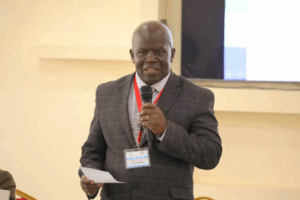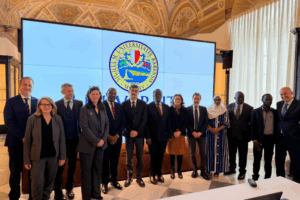MMUST Productivity Champions Set to Upscale Productivity in the Institution as New Strategies Are Rolled Out
Masinde Muliro University of Science and Technology’s (MMUST) productivity champions are set to upscale productivity in the institution after the conclusion of the recent Root Cause Analysis (RCA) undertaken by the heads of cost centres. The RCA of 15 metrics was carried out with the guidance of National Productivity and Competitive Centre (NPCC) experts, Ms. Jane Maina and Mr. John Chege. The two days champion’s workshop, which took place on 4th and 5th September, 2025, was part of the week-long workshop organized by the Directorate of Performance Monitoring and Evaluation (PME). It was officially closed by the Ag. DVC Planning, Research and Innovation, Prof. Peter Bukhala.
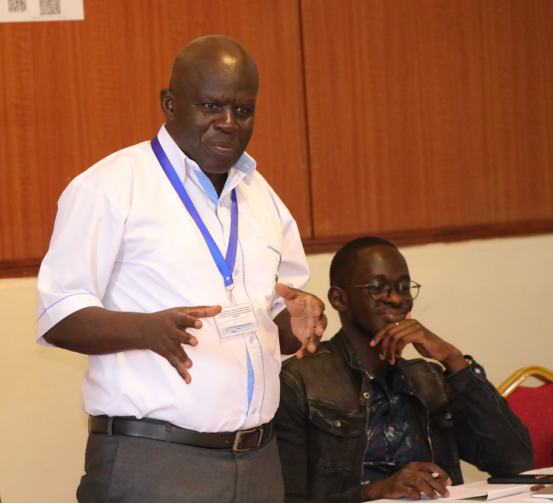
The Ag. DVC Planning, Research and Innovation, Prof. Peter Bukhala addresses the members during the closing ceremony of the workshop.
Speaking during the closing of the two days champions workshop, Prof. Bukhala encouraged the champions to engage their departments and other affiliated members in order to ensure implementation of the productivity recommendations agreed upon. “Let us upscale our data collection in the various departments and sections and include in this document, thereafter, we must implement the resolutions we have agreed to in our various sections as champions. Let us share this document with people where we work so that we gather more information that will enable us to present what is truly MMUST. Such public participation will ensure that productivity is owned and implemented successfully,” said Prof. Bukhala.
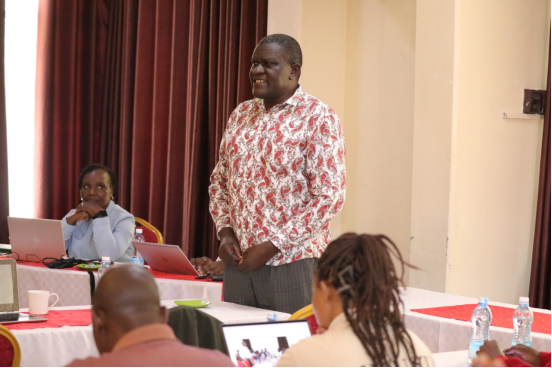
The Director PME, Prof. Joseph Nasongo makes his remarks.
The Director PME, Prof. Joseph Nasongo appreciated the efforts of the NPCC, productivity mainstreaming committee and the productivity champions for the informative sessions that characterized the entire 5-days, two in one workshop. “This was beyond training- it was a hands-on exercise that has equipped members with the requisite skills to enable them implement the improvement strategies. We have an elaborate document that we hope will be cascaded and ensure buy-in by all cost centres. Productivity mainstreaming will transform our institution,” remarked Prof. Nasongo.
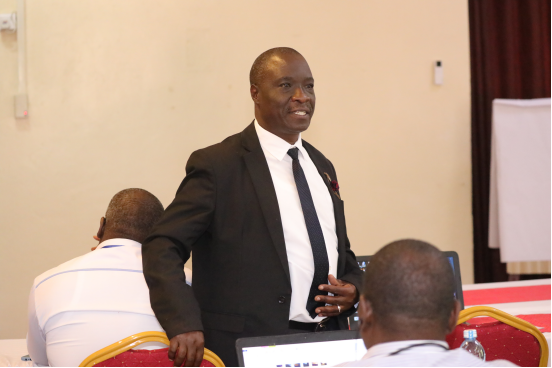
The Coordinator Productivity Mainstreaming, Dr. Bernard Rapando speaks during the workshop.
Giving the historical background of the University’s productivity journey, the Coordinator Productivity Mainstreaming, Dr. Bernard Rapando noted the improvement achieved over the years regarding the metric scores in productivity. “The institution has improved its productivity index from 1.625 to 1.824. This puts MMUST at Fair Productivity, which begins at 1.5. The target that the champions need to help us achieve is 2.3 and will enable the University to enter the High Productivity Scale,” stated Dr. Rapando, saying that the improvement is as a result of coordinated effort from every Centre, Directorate and School.
“I thank the University Management and the NPCC for the successful conclusion of this important workshop. This committee of champions, chaired by the Dean SONAS, Dr. Joseph Owino was appointed by the Vice Chancellor. Together, we shall cascade these issues right away,” he added.

The Chairperson MMUST Productivity Champions, Dr. Joseph Owino makes a point.
Commenting on the next steps, the Chairperson MMUST Productivity Champions, Dr. Joseph Owino revealed that the metrics will be cascaded to various stakeholders for ease of data collection. “ The metrics will be examined afresh in order to review them and make them measurable and achievable.We need to improve our productivity index,” pointed out Dr. Owino.
Up scaling productivity in the 15 metrics, which include completion rates, pass rate, Proportion of published articles, growth of revenue from research grants, percentage implementation of agreements in Memorandum of Understanding (MoU), level of implementation of community outreach activities, student satisfaction, growth in number of students supported through externally bursaries and scholarships, employee satisfaction, supervisory rating score, proportion of Intellectual Properties registered, rate of return on University Research Fund (URF), Proportion in Appropriation in Aid (AIA) to the budget Aid, percentage Integration of of automated of processes, will undoubtedly inject new life into MMUST’s structures and processes.
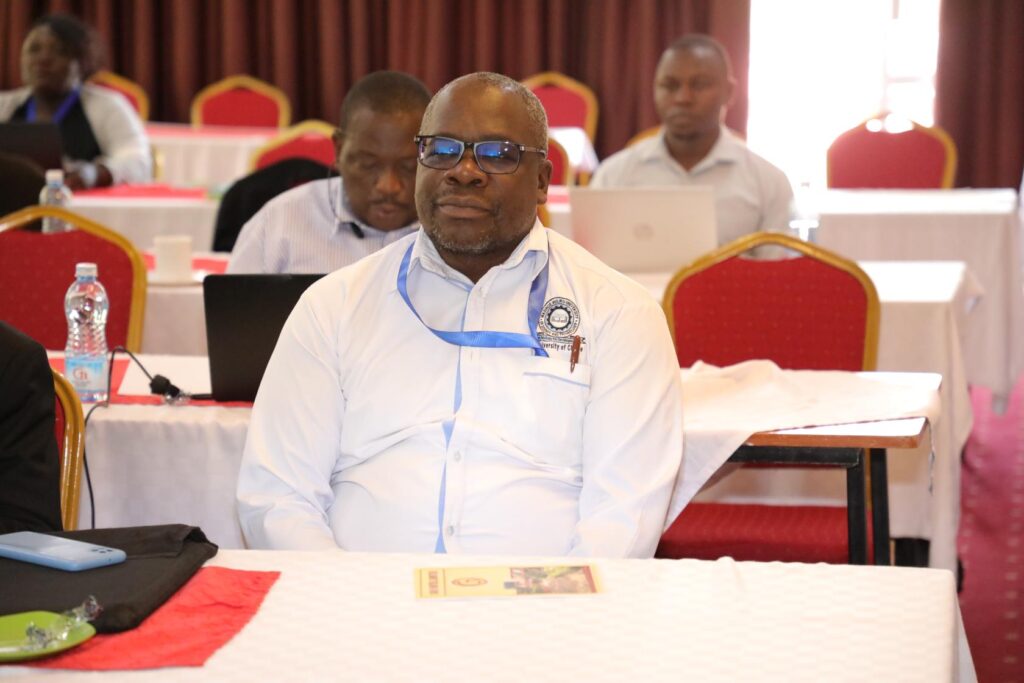
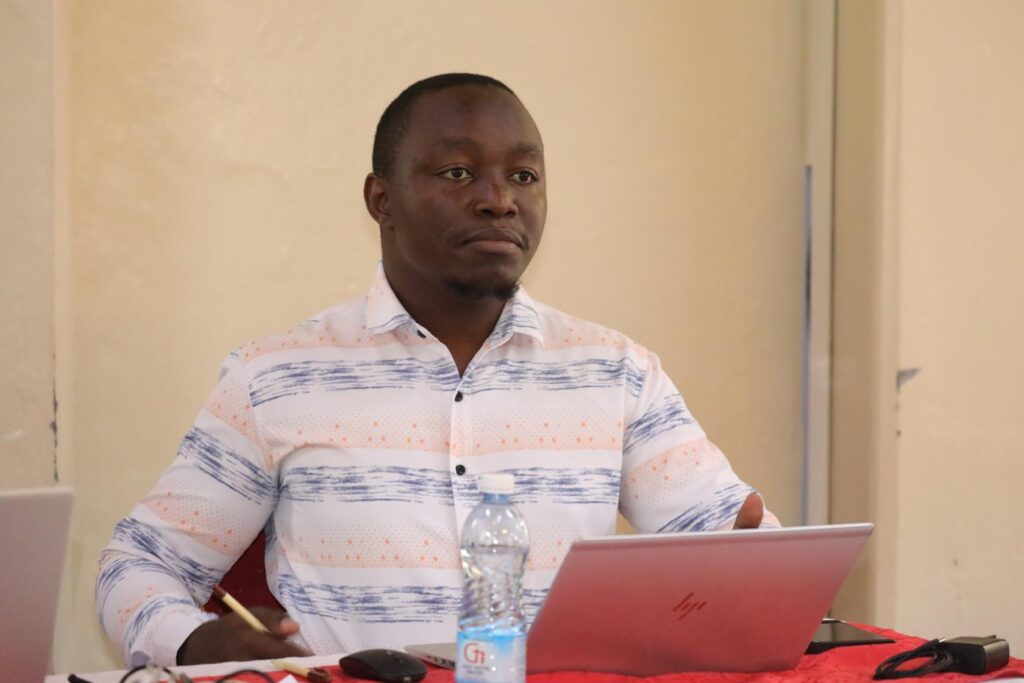
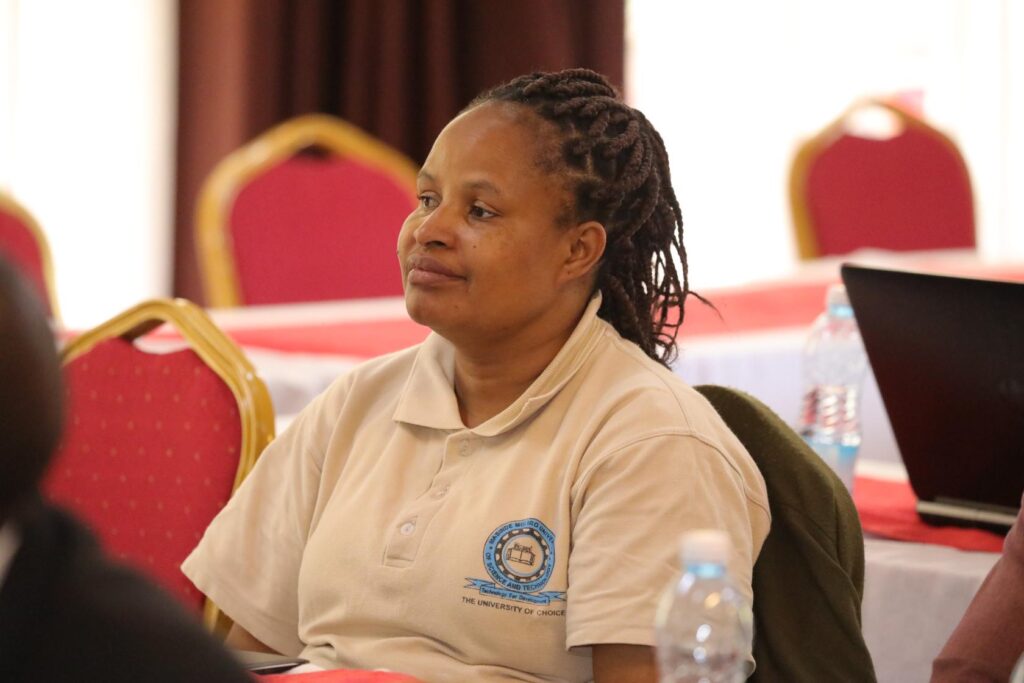
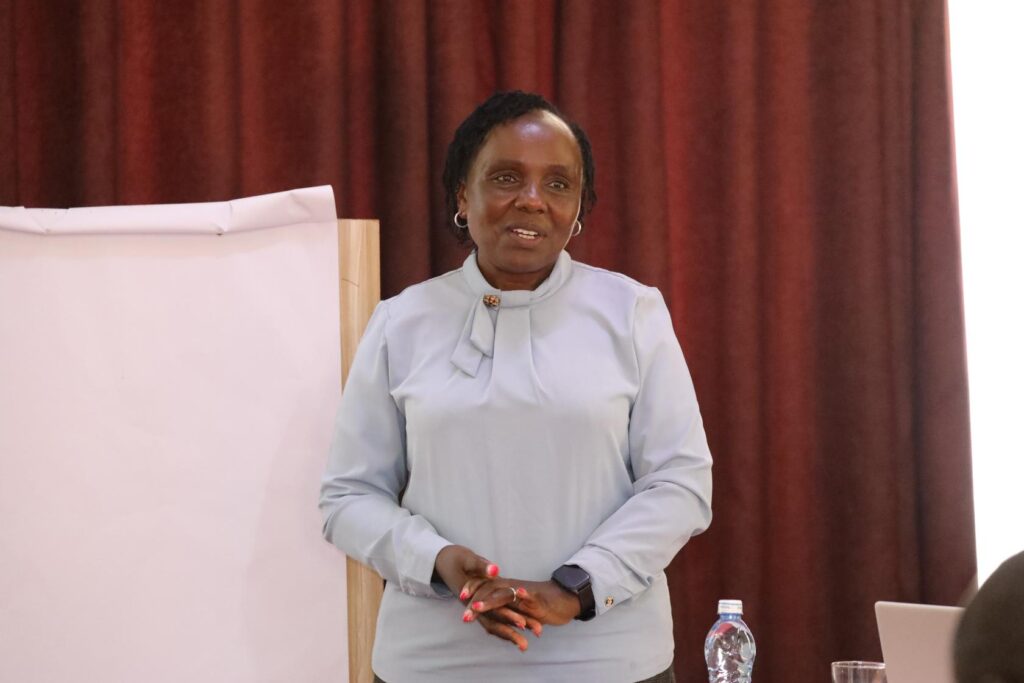


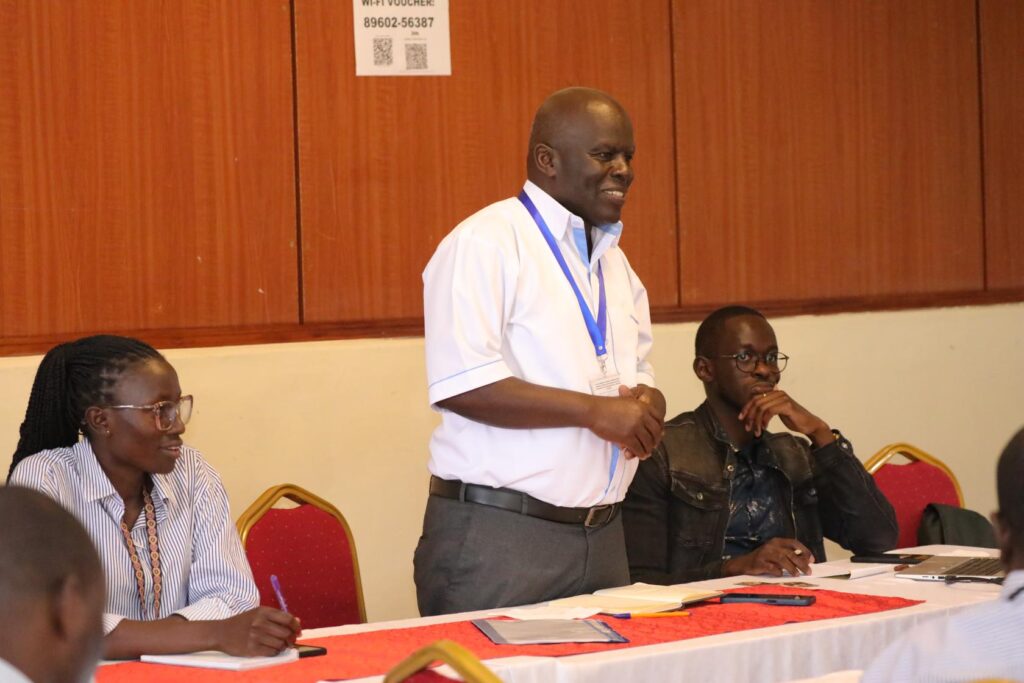
By Dr. Lydia Anyonje and Caren Nekesa
Photos by Shiundu Masafu

